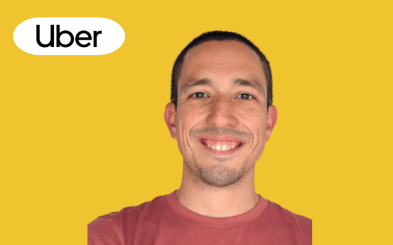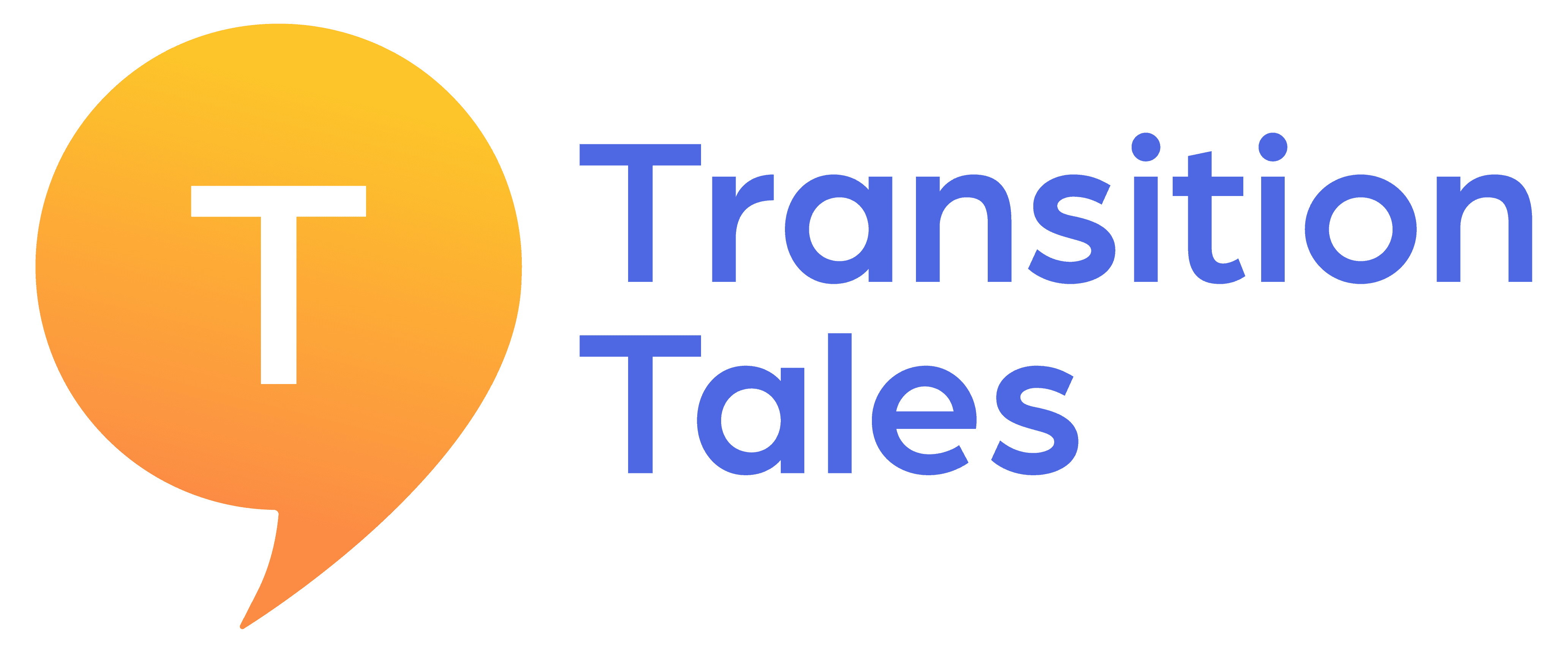Profile
How Jose Sandi Moved from Call Center Agent to Operations to Product Management
About
Challenges
Resources

Jose Sandi
Product Manager at Uber
Transition Summary
Agent @ Call Center
Call Center Management @ Call Center
Operations for Call Center Launch @ Uber
Product Operations @ Uber
Product Management @ Uber
What have you recently been up to?
So my name is Jose Sandi. I'm 38 years old right now. I have been in product at Uber since around eight years ago.
Tell us about your career journey!
The very first job that I had was in a call center while studying, started at the very beginning of my time in college.
I first grew into different roles in the call center industry: phone agent to team lead to program manager.
And the other piece was my experience in non profits. I was a construction director for a volunteer organization here in Costa Rica building houses for families in poverty. I did that for two or three years – working with volunteers, finding communities in my country, and making a difference in people's lives by significantly improving their living conditions.
How did you make your way from the contact center to tech?
After working in call centers and non profits I was actually in New York at the time looking for a job.
I heard about Uber. They wanted to open in Latin America. I found the job post on a website used in Costa Rica and some other countries to post jobs (el empleo.com). LinkedIn and Glassdoor had not become a job posting place yet so these other websites were used to post jobs.
I didn't know anyone since Uber was very much in it's early stages in LatAm and there weren't any people hired in Costa Rica.
So it was literally me applying for a job that I felt capable of doing since I had learned about it from previous roles in Customer Service, learning about the company and feeling like I could be a good candidate
They chose me to be the first operations manager building the Uber contact center for the entire Spanish-speaking region of Latin America because of my call center experience and non profit experience.
And then you moved into product? Why/how?
When I was working in customer service, I found that it was very uncomfortable to always be on the reactive side of things, especially when addressing preventable emergency situations at Uber. I was thinking it would be so much easier if I could just change our systems to proactively reduce incidents and incident response time. With Uber still very much in the startup phase at the time my mindset was: “I can actually do this. This is something that I can actually have an influence on. I understand this other issue and there's nobody doing it right now.”
I wanted to do something where I could just like literally change the way things and have a real world impact on people's lives.
I knew that I wanted that. I just didn't know how or where. So I started having conversations with two of my mentors who were my manager and his manager. I said “there has to be something else I can do.”
At the time the first ever safety product operations manager was actually looking for his first hire for the area. And he reached out to the different folks across like the different places in the world and since Latin America was such a hotspot for safety and since I had the know-how of users, he accepted the recommendation from my mentors to include me into the hiring pipeline. He did eventually say that the CS experience was a big part of this for sure.
I didn't know anything about tech but I applied. I did the exercise and it took me a very long time, but after doing it I actually saved it just to look at it and see that I was way ahead of the stuff that I was thinking about that I just had no idea.
What did you learn when you first joined Product Operations from Call Center leadership?
Product operations is like that intermediate role where you're able to translate tech to ops, where you still need to speak with ops people but you're also speaking to tech and to engineers and you have exposure to that.
I was thrown into some of the most complicated problems that required interventions based models made with machine learning. And I knew nothing about machine learning.
So I did two things. One thing was working closely with the people on the team starting to learn. Then the second thing that I did was I took it upon myself to be the person that took notes in our meetings and at night I went back to these notes to understand them.
The third thing was I had to adjust not needing to do everything.
First, they were like, “you don't need to do querying. Look, you have applied scientists and data scientists for that.” Then it was, “You don't have to do design, you have designers for that.”
“You don't need to do this. You don’t need to do that.”
And so this was a very terrifying moment. I didn’t know what I was supposed to do because I’ve grown to be a jack of all trades, with a broad, extremely useful and adaptable, but ultimately shallow understanding of things. Then all of a sudden, all of that stuff is handled by somebody that's gone to school for 10 years to learn about it.
Eventually I learned to ask: how do you connect people?
What were some of the challenges that you faced while trying to jump into this role?
I'd say that the very very first thing is just self confidence.
It was very intimidating when you get to San Francisco, you walk through those doors and then there's a whole bunch of people that have spent the past eight years studying whatever, and you have to speak the same language. You present to people that you've only seen in emails that go out to the entire company.
Second was understanding that in every product role you need to take your time to learn and pace yourself and understand the problem because otherwise, you're going to do what you do in ops, which is just band-aid short term solution of a problem without thinking if it's the best way to solve it.
Sign up for our newsletter
Discover inspiring stories, valuable resources, and advice to navigate your
career transition with people who are two steps ahead of you.
What helped you build that confidence? How do you create relationships that help you?
I once had a 15 minute presentation for a summit and it went horribly. I almost packed it up after that. But my Product Manager coached me and that was very important for me to get myself together and know I was going to be fine.
As I've been moving into different roles, I've always kept close contact with the people that I've worked with. So I'm just going back to people.
I would occasionally go back to my manager from my first role and just let him know what's going on.
For me, in the middle of the noise, I need people to keep me grounded in what's important. And I also have no interest whatsoever in anything except for a good relationship
These people are not just professional acquaintances, but people I respect for both their professional and human qualities. I just keep in touch with people I genuinely like and want to maintain a relationship with.
What is your advice to folks transitioning in their career?
The real question, the real thing is you have to know yourself and the issue you are tackling very well. Every Product Manager will ask you: “what is the problem that you want to solve?”
If you don't have clarity on that, something's off.
So you need to develop that self awareness. This is where mentors come in because again, you don't want to be biased into your own way of thinking. You need a slap in the face or a push moving in the right direction
I'm sure that there's tons of books on how to execute your role technically. You could read and learn as you go, but for me it's always been the belief: if you spend more time doing the things that you love, the path will open up. But I also know sometimes it's a privilege to be able to give yourself the time and resources to do that.
And next is to know the job and expectations. If I want to break into product, I'm going to have to learn some skills. Okay, what skills? You could find out what those skills are and then say, “okay, let me take the next three months and I'm going to learn these five things.”
Develop self-awareness to understand the problem you’re trying to solve.
If you spend more time doing the things that you love, the path will open up.
Know the job and expectations. Figure out what skills you need to learn and text the next three months to learn them.
What's next for you Jose?
Just like when I moved to Uber and then into product, I’m in a career transition right now too.
I quit my comfortable job at Uber to take a sabbatical. I chose to do an executive MBA at a school that has people from all of the region of Latin America, from all these different industries. So I'll learn about all the things that I haven't learned from highly skilled professionals in each one of those areas.
My expectation is by the time that I get out of the sabbatical I'll understand what the next step actually is, because I don't know what happens after that and I've come to understand that you have to be comfortable with a certain degree of ambiguity.
That's just the way it is.
And so I don't know what will happen after two years. But I know things reveal themselves. That’s what the next step is.
Transition Tales
